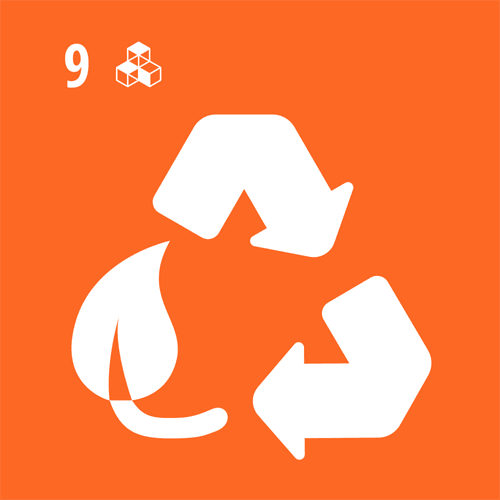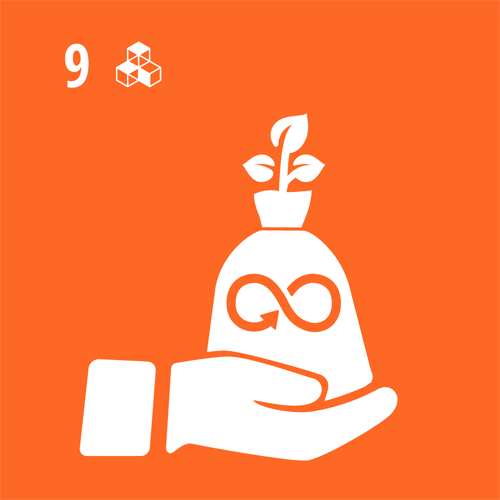Build infrastructure, promote inclusive and sustainable industrialisation and foster innovation
SDG 9 is about fostering innovation, access to knowledge and research, sustainable construction and promoting sustainable investments. Infrastructure and innovation are important driving forces for a more sustainable economy. An economy that does not overshoot the ecosystem’s boundaries while safeguarding basic human needs. In order to find sustainable solutions for economic, social and environmental challenges, technological progress, sharing knowledge, sustainable infrastructure and sustainable investments are key. This starts with providing access to everyone to communication technology and research.
SDG 9 is closely related to other SDGs in the prosperity cluster, such as SDG 8 (decent work and economic growth) and 11 (sustainable communities). Students can contribute to SDG 9 by collaborating, speaking up and acting for positive economic change. In your classroom you can talk about subjects such as the circular economy and encourage students to think about how they can contribute to it. You can also teach them techniques to contribute to sustainable innovation, teaching them to think in a systematic way and working with scenarios. This will help them to identify opportunities in their own communities for greener and more resilient solutions and to ‘make smart choices’ in their own life. As an individual you can contribute to this SDG by “learning about plans for progress in your country, staying smart and kind online, supporting construction that benefits people and protects the planet, welcoming innovations that make the world a better place and demanding the benefits from progress are shared.” (Futerra Good Life Goals, 2018)










